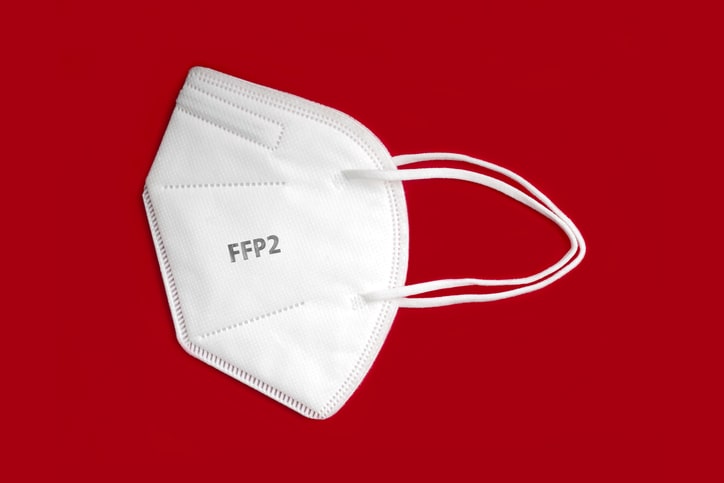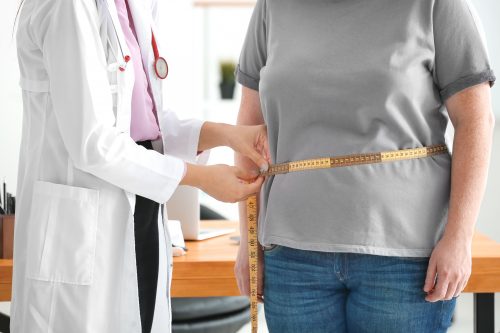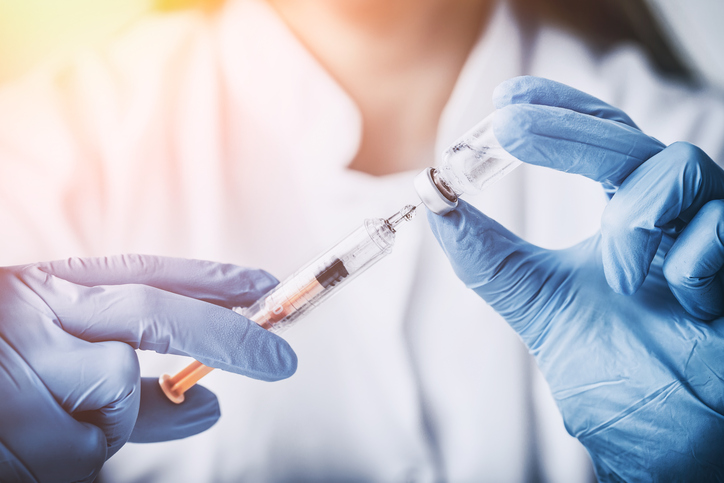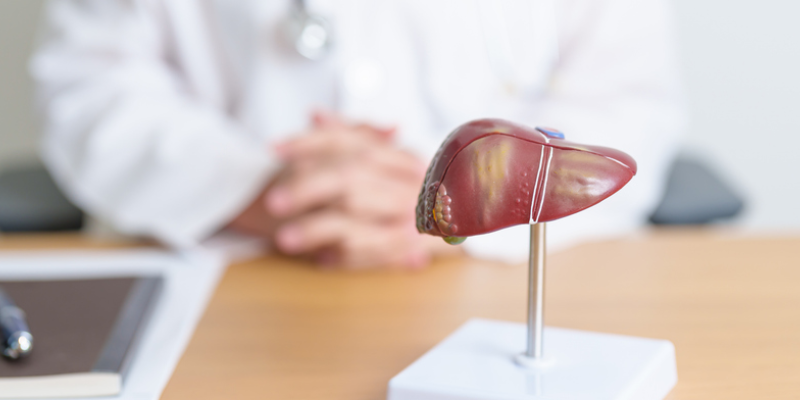Rachelle McCray, Founder/CEO of the MinMinBear Foundation: Providing Comfort to the Kidney Community (Part 1)
By Rob Dillard - Last Updated: February 5, 2024Living with kidney disease is both hard and frightening. One Arizona-based foundation is here to help. The MinMinBear Foundation, founded by an Alport Syndrome patient, was started to advocate, comfort, and educate on behalf of kidney disease patients. And how do they do so? By way of their mascots, the MinMinBears; small, lovable, and soothing teddy bears that bring comfort to patients and families impacted by this disease
DocWire News would like to introduce you to Rachelle McCray, the Founder & CEO of the MinMinBear Foundation. Rachelle, a nationally recognized television show host, entrepreneur, and philanthropist, who won the title of Miss Arizona United States in 2011, is passionate about her foundation, and is an invaluable resource to the kidney community. In the first of a two-part interview, she spoke about her journey, the genesis of the foundation, and the impact MinMinBear has on those affected by kidney disease.
DocWire News: Can you give us some background on yourself?
Rachelle McCray: My name is Rachelle McCray and as Rob mentioned I am the founder and current executive director of the MinMinBear Foundation. Prior to founding the foundation, I’ve worked in television for the last 15 years as a television host. Most recently, I was shopping on the world’s largest home shopping channel, and prior to that, I was actually in entertainment news.
So red carpets, junkets, sit-downs, but that was my career. And then aside from my career, something that ran parallel was my family’s health and my own health. I am a kidney patient myself, I’m an Alport syndrome patient, so I suffer from kidney disease, as does my mother and my sister, since Alport syndrome is genetic.
So my life, as much as my career ran parallel, you’re in this balancing act, which led me to founding the foundation, but also led me to being a voice in the community as a patient advocate. So, the story goes a lot deeper than that, but I would say that’s the easiest 10-second description that we can come up with.
Talk to us about the MinMinBear Foundation, and how it was started.
So as I mentioned, my mother is also an Alport syndrome patient, but she’s also a kidney recipient. She is currently on the waiting list for her second kidney transplant. Her first transplant was performed in 2005, when my grandfather gave his kidney as a living donor. Now most people, when they hear that, they assume that it was her dad that gave the kidney, but it was actually my dad’s father, my paternal grandfather that gave his kidney because my mother’s father died of Alport syndrome at the age of 23, while he was on dialysis.
So we didn’t know much about Alport syndrome, especially for a long time. I was in high school when my mom found out that she was in stage five renal failure and needed an organ transplant. She actually fainted at my high school graduation. So fast forward through the experience that we had being tested for donors, I am not eligible to donate because I have the same kidney disease. My dad wasn’t a match. Other family members weren’t a match, but my grandfather was. So he selflessly donated his kidney in 2005.
And then I became Miss Arizona in 2011, which is really when MinMinBears kind of started. We started as an initiative to raise money actually for the National Kidney Foundation, and I wanted to tell my mom’s story and the success of living donation. And then we all moved on and we were still advocates, but not a lot was happening. And then 2018, my mom went into kidney failure again for the second time, needing another transplant.
So the pandemic hit and it was like, “Well, how are we going to find a match? We’ve already tried to go down this road with our friends and family. We are going to need the gift of a stranger.” So we decided to send MinMinBears around the country and see if we could get the word out that my mom needed an organ. And that initiative, we called the MinMinBear Challenge went viral. And here we are, two years later, we are a foundation that now helps other kidney patients, which leads us now obviously to our ACE campaign in 2022.
What is the ACE campaign?
Sure. So ACE campaign encompasses everything that we do. So we originally started with the one bear, talking about my mom’s story and trying to find a donor. And what we realized was there are more people that need a voice than just my mom and just me and just my sister. So what we’ve done is we’ve evolutionized into what we are, which is in a foundation that advocates comfort and educates, which is where we get the name ACE. And it goes to speak to all of the things that we do here at the foundation.
And that was why we decided to name it ACE, is because we thought how can we really get the word out that this is what we’re doing for patients and how we’ve gone from just sending out Teddy bears on my mom’s behalf to now doing it to comfort and educate other of patients as well?
What are some challenges kidney patients face that might go unrecognized?
Wow! That’s a really great question, because kidney disease comes in all different forms and at all different stages of life for diagnosis. You might have a genetic condition like I do. Some people get it from injury or illness. Kidney disease can come from a lot of different ways. And there are over 37 million Americans living with CKD, or chronic kidney disease. So it’s not a small problem. It’s a big problem. And it’s something that a lot of people in America encounter and live with every day. Some of the biggest challenges though are resources, and one of those resources that we found that is lacking is comfort.
We all have at some point most likely been in a doctor’s office or a hospital with a loved one, or at some point down a health journey and things can feel very sterile. And that’s where the MinMinBear Foundation realized that we can actually provide something that’s missing, which is this piece of comfort that is very much needed, which is why we use our Teddy bears, the MinMinBears to bring that, because there’s something about having a physical plush Teddy to hold no matter what your age.
We distribute these bears to pediatrics all the way to adults, and they go to dialysis centers, and they go to pediatric hospitals and they go to child life teams, and you would not believe the stories that we get of people that are like, “Hey, this bear is awesome,” and we love that there’s this piece that I can bring with me and I can hold, and I can hug during a blood draw, during something that feels uncomfortable, during a scan. So one of the biggest components that patients face is I think lack of resources and lack of comfort, which is where we try to come in and fill that gap.
What impact does MinMinBear have on the lives of kidney patients?
That’s a really great question because the impact that we’re currently having and that we’re currently seeing is… I get emotional talking about it because it’s very overwhelming to me. When I started this, it was to help my family and what we were going through, and then when we extended it to other people, you realize very quickly that you’re not alone. And I think there’s something to be said for that.
And again, I get emotional talking about it, but the stories and the impact that we are having, I can think of a patient, a pediatric patient that they could not get… It was a child. He was three years old, getting ready to go in for a pretty major procedure, was very done, very upset, did not want to participate in anything that was going on, and who can blame him?
And they just couldn’t do anything to calm him down, and they brought him a MinMinBear, and instantly, he clung to it. He stopped crying and he’s brought that thing with him everywhere he goes, and that’s only one story. Our Instagram, our DMs, our emails get flooded with people that say, “Hey, your bear made a difference because…” or “This is how it’s changed our lives.”
I have one mother that messaged me on Instagram and said, “My child needs a kidney transplant, and we were gifted this bear in a facility that we were in and you challenged us to live our best life.” That’s part of our MinMinBear Challenge. And she goes, “We haven’t had a great life since the pandemic started, and there’s a lot going on, and it’s been very difficult and very sad and very hard. And we’re deciding that we’re going to jump on with your challenge and we’re going to take this bear and we are going to live the best version of our lives. Not someone else’s life, but our life. And we’re going to take that on.”
And they take their bear everywhere. I follow them on Instagram now, and that bear goes with them everywhere you can think of. But I think that the impact is knowing you’re not alone, you’re supported, and that there’s other people out there that are suffering from the same thing that you are, even if it’s in a different capacity. We can all relate to each other and we’re all here to support each other too.
Any closing thoughts?
No, I think the biggest thing is just if you know someone with kidney disease, or if you’re a physician who cares for someone with kidney disease or a nurse or a caregiver, or you suffer from kidney disease yourself, just think about how you can reach out or how you can just ask someone if they’re okay. Some days, it’s okay not to be okay. There are days where people just need to say, “You know what? Not having a great day today,” or “No, I’m having a great day.”
You need to celebrate your wins too, but I think the biggest thing for people to understand is if you know someone who’s chronically ill, just being there, just being an ear or a friend or offering a hug, if you can if they’re able to have a hug at this time, or just offering them a piece of comfort, piece of advice, sometimes they just need an ear to listen to I think is one of the biggest things I always try to say.
Because like I said, going back to the comfort piece, it’s very much missing, I think in a lot of cases. So if you can offer that to a friend or family member, or a patient of yours and just say, “How you doing?” I think it goes a long way, and I think it also helps impact our mental health in the best way. So if you can just try to remember that, I think just one, “How are you?” goes a million miles.







 © 2025 Mashup Media, LLC, a Formedics Property. All Rights Reserved.
© 2025 Mashup Media, LLC, a Formedics Property. All Rights Reserved.